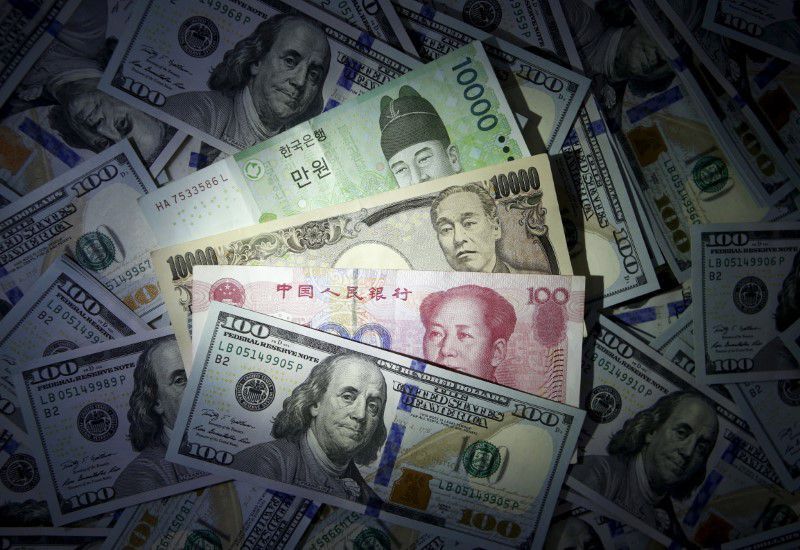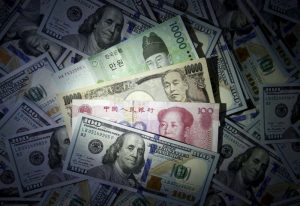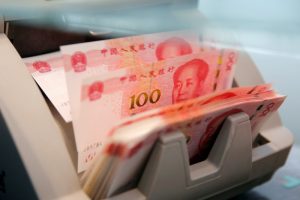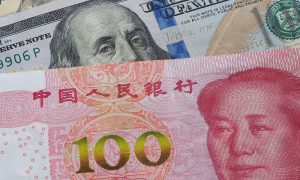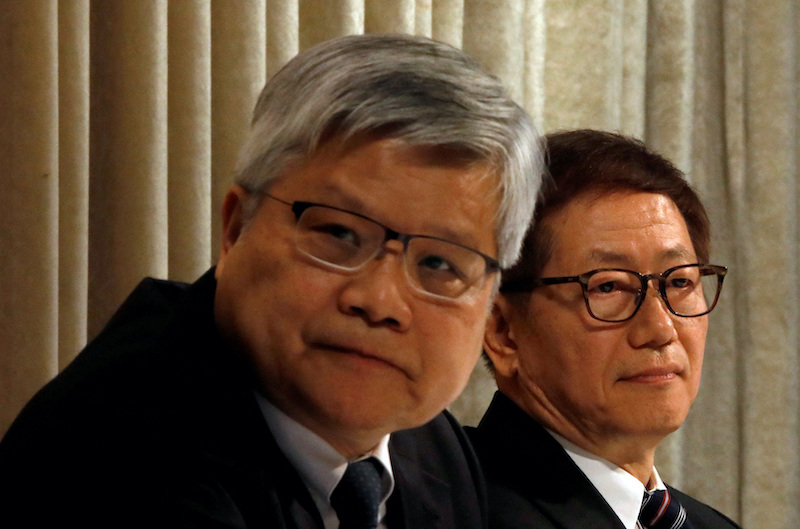Asian central banks have sold more than $30 billion of foreign exchange reserves in the past two months in a largely unsuccessful attempt to stabilise their currencies, analysts at JPMorgan said.
Currencies across the region have been highly volatile all year, hemmed between China’s defence of its yuan and a surging dollar backed by a progressively more hawkish Federal Reserve.
But that significant level of intervention, which excludes China, has done little to calm investors worried about diminishing returns in emerging markets as dollar yields rise and currencies weaken.
Also on AF: Updated US Rules May Ban Sale of ‘Fast’ AI Chips to China
Official data showed a net outflow of $2.7 billion from Asian local currency bonds in August as bond markets in Malaysia, Indonesia, South Korea, India and Thailand clocked their biggest net sales since October 2022.
Foreign exchange reserves have dwindled across the region. South Korea’s reserves stood at $414.12 billion at September-end – the smallest amount since October 2022, while Indonesia’s reserves fell to $134.9 billion last month, the lowest since November.
Not all of the change can be attributed to intervention, though, as the dollar’s rise has also eroded the value of other currencies held by central banks.
“Literally everybody in Asia is now participating in the market much more,” said Brad Bechtel, global head of foreign exchange at Jefferies. “The dollar would be far higher if all these Asian central banks weren’t participating so aggressively.”
Indonesia’s rupiah was, until early this month, one of few Asian currencies to be up against the dollar but is now down about 1% for the year. The South Korean won is down more than 5%, while the Thai baht has slipped nearly 5%.
The Reserve Bank of India (RBI), Bank Indonesia and Bank of Thailand have spoken out against speculative foreign exchange trades, and over the last month stepped into the market to support their depreciating currencies.
India’s foreign exchange reserves stood at $584.74 billion as of October 6, the lowest in more than five months.
Fading Hopes of Monetary Easing
Speaking on the sidelines of the International Monetary Fund and World Bank annual meeting in Marrakech, RBI Governor Shaktikanta Das last week said, “central banks in emerging markets were required to intervene in the currency market from time to time to prevent excessive volatility”.
While reserves have fallen, they are above levels seen in October last year and still leave central banks with ample ammunition.
But gyrating currencies and the challenge of fighting an unstoppable and forceful dollar rally – further strengthened by current events in the Middle East – have also hamstrung any hope of monetary policy easing in most of Asia this year.
Aninda Mitra, head of Asia macro and investment strategy at BNY Mellon Investment Management, said it was not a surprise that rate cuts in Asia are off the radar this year and seem to be getting pushed into 2024.
“The reality is FX intervention will tighten liquidity… That completely works against what you are trying to accomplish via a rate cut. So why even bother?”
- Reuters with additional editing by Sean O’Meara
Read more:
Economic Risks Mount for Asia as Israel Declares War on Hamas
Yuan Dives to Lowest Level in 16 Years as Recovery Wanes
China’s State Banks Seen Buying Yuan in Offshore Markets
Nikkei Slides, Hang Seng Dips as Middle East Worries Weigh




